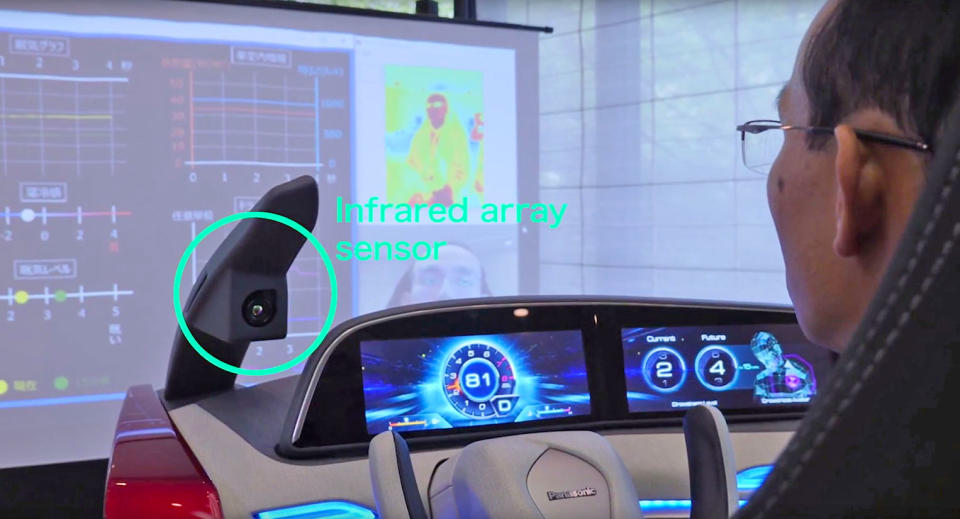Panasonic AI senses drowsy drivers and cranks up the AC
It scans your facial expressions, eye blinks and body temperature.
Until self-driving cars get a lot better, the only AI controlling them will be us. Since we're imperfect, sleepy beings, however, Panasonic is using artificial intelligence in a different way: To detect when we're drowsy and pull us back from dreamland. There's a surprising amount of tech to that, including an infrared sensor, environment sensor, facial capture camera and "thermal sensation" system that activates the car's AC or alarms if all else fails.
Panasonic came up with five different levels of potential drowsiness: not drowsy at all, slightly drowsy, drowsy, very drowsy and seriously drowsy (their terms). The system aims to figure out exactly where you are on that scale and take the appropriate measures.
To do so, the camera uses AI facial recognition to detect eyeblinks and expressions. If your eyelids droop and the speed of your blinks slow down drastically, for instance, you're likely on a level five journey to sleepyville. All told, it can detect around 1,800 facial expressions and blink parameters related to drowsiness.
The infrared sensor, meanwhile, can tell how fast you're losing heat regardless of how much clothing you're wearing. If heat loss levels are higher, generally a driver will become drowsy more quickly. Furthermore, if it's dark rather than light, you'll also tend to get sleepy over a shorter period of time.
To counter that, the system adjusts lighting, airflow and temperature based on how drowsy it thinks you are. The system doesn't want to freeze you out, though, so, Panasonic worked with Nara Women's University to calculate your "thermal sensation," the ideal level of airflow, light and warmth needed to keep you "comfortably awake," Panasonic says.
Unlike other systems, it works silently in the background so that drivers don't even notice they're being monitored. Rather, you'll (hopefully) just feel generally more awake during the trip, unless you try to pull off a 20-hour all-night trip. In that case, it'll rightfully tell you to pull the hell over so you don't endanger yourself and others. Panasonic plans to make their system available to automakers by October, and it might come to your favorite car model sometime after that.


